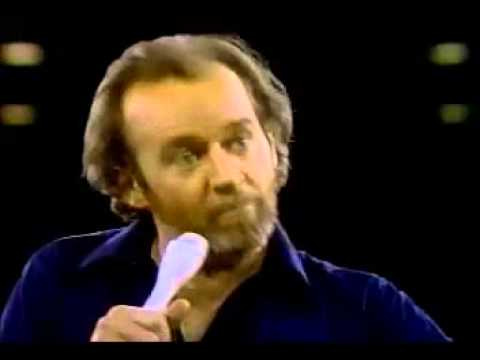Earlier today I had cause to remind people that the United States of America, which proclaims loudly and repeatedly that it believes in Freedom of Speech ™ also has an official government list of Seven Words You Can’t Say on Television. The Old Folks around here will remember George Carlin riffing on that topic.
I actually was acquainted with a community radio veteran who famously took that regulation all the way to the Supreme Court - and lost.
Canada has no such list. I know this because back in the 90’s a radio acquaintance became convinced that the Canadian Radio/Television and Telecommunications Commission (CRTC) had to have a similar list. It seemed inconceivable that they wouldn’t have one because that would mean that anyone could broadcast anything, and that seemed impossible.
(Parenthetically, it also made life tough for campus radio station managers because you couldn’t just tell some snotty nosed volunteer “It’s not allowed”, you instead had to develop a rationale to prohibit something obscene at 3pm on Easter Monday rather than risking outraged phone calls on Tuesday.)
Anyhow, Mark wrote a letter to the CRTC asking them what the rules were for obscene content.
The CRTC wrote back to say that they really couldn’t comment unless a complaint had been filed with them.
Mark wrote back, and asked, hypothetically, if they had received a complaint about an apparently obscene song, how they would rule on it.
They wrote back to say that the CRTC really couldn’t comment, because much would depend on the context within which the song was played, and the intended audience, and the presentation….
This exchange went back and forth for more than a year, until finally Mark mailed the CRTC a compact disc containing ten of the most foul, obscene, and offensive songs ever recorded. And these were the days of punk rock and cassette tapes, so there was a lot to choose from.
And they wrote back again that they really couldn’t offer advice because it was all about the context in which the songs were presented.
What the CRTC was really saying was this:
If you’re smart enough, and have enough money, to operate a broadcast radio station, then you’re presumed to be an adult, and capable of making intelligent choices.
And that, at the end of the day, is how Canada differs from the US. The working assumption is that we’re adults, and reasonably bright and educated, and can be trusted to make decisions for ourselves.
The US, especially now, sees it’s citizens as children who can’t be trusted to make intelligent choices, who need to be told what to do at every step, and who should expect to be sent to bed without supper if they can’t keep that noise down.
One of the great weaknesses of the American people is that they have for too long believed their own publicity. They are the country of Lina Lamont, who famously proclaimed:
"People"? I ain't "people." I am a - "a shimmering, glowing star in the cinema firmament." It says so—right there.
It’s time for the rest of the world to raise the curtain on American exceptionalism, and stop pretending that the current US administration is in any way sane, competent, or reasonable.
Canada could, if we chose, play that role. We’re uniquely placed to do so, living right above the children, and having spent so many years suffering the tantrums and spoiled pouting that characterizes the US today.
And yes, we need to accept that there will be screaming, and stomping feet, and perhaps a door will be slammed, but it’s still our job, as the adults in the room, to set some rules, and teach the children how to behave in polite company.




